While the MRC already supports some research in this area, we wish to encourage a wider range of applications relevant to medical research. Research proposals may cover the spectrum of research from studies that explore important cellular and molecular mechanisms, through to more translational medical research that would underpin the development of new health interventions.
The MRC would particularly welcome applications on the following topics:
- Improving the therapeutic effects of radiation in the treatment of cancer, including but not limited to combining radiation with drugs and biological agents, interactions with the tumour microenvironment, scheduling, and biomarkers of response.
- Studies of approaches to improve long term health and minimise morbidity after radiation exposure, including radiotherapy treatment.
- Understanding the fundamental processes associated with radiation injury from initial damage to pathogenesis, at the molecular, cellular, tissue and organ levels.
- Research into the pathways involved in radiation carcinogenesis including, but not limited to, DNA damage signalling and repair, individual susceptibility and gene-environment interactions.
- Development of novel biological approaches from radioprotection to treatment of radiation toxicity.
Applications are considered in competition with other applications received, but the Board/Panel will take into account the need for enhanced investment in this area.
Applications should be submitted to the relevant research board or panel in accordance with our standard deadlines. Applications that extend beyond a core health focus can be funded in partnership with BBSRC and EPSRC.
Cross-Council applications will be assigned a lead Council, which will draw on expertise from across Councils to take a single funding decision.
Up to £20,000 available for feasibility study projects to further broaden the knowledge base in intelligent automation within the manufacturing industry.
The Engineering and Physical Sciences Research Council, under the Centre for Innovative Manufacturing in Intelligent Automation, invites proposals for feasibility studies. Funding enables academic staff to undertake feasibility studies to broaden the knowledge base in intelligent automation.
Studies should aim to identify and develop ideas and approaches from other disciplines that can be applied to novel intelligent automation systems. A particular focus is on developing research areas that have not been applied widely within the manufacturing domain before. Possible areas may include the following: psychology; service robotics; computer science and artificial intelligence; soft robotics; 3D machine vision.
Funding available The maximum funding available for each feasibility study is £20,000. Grants will normally be of a maximum of six months duration. The studies are being funded at 80% fEC i.e. if your bid is successful you will gain a maximum of £20,000. Equipment The funding is intended to cover the costs of the PI and support staff in the completion of the feasibility study. Estates/indirects, consumables or equipment costs are not included in the grant. Any additional support you may need could be through matched funding. Eligibility All academic staff at UK Universities and associated Research Institutions who are able to hold a UK Research Council grant as Principle Investigator are eligible to apply.
Closing Date: 28th July 2015
Virtual reality (VR) and augmented reality (AR) are exciting technologies at an early stage of development. We are looking to provide support to businesses that want to apply these technologies in new and untested areas. Innovate UK is offering up to six businesses a maximum of £35,000 each to encourage innovation around VR/AR across the themes of music, retail, healthcare, education, construction and tactile technology.
The recent re-emergence of VR and AR has caused enormous excitement across a wide range of sectors. The application of such technologies – not just for entertainment or information-sharing, but also in more technical and industrial contexts – offers users entirely new ways of perceiving and interacting with the digital world. Through our IC tomorrow programme, we are looking for proposals from companies with innovative digital ideas relevant to developing these immersive technologies. The companies will not only benefit from funding, but also the opportunity to collaborate with commercial partners to accelerate development of their technologies. We want to see solutions with potential appeal to a wide commercial market. Successful applicants will be expected to trial their proposed solutions with their industry partners for at least three months.
- trial your technology with major industry players while keeping your intellectual property
- secure up to £35,000 to develop your solution
- receive promotion, support and advice to speed up the commercialisation of your solution.
Closing Date: 18th August 2015
The Healthcare Technologies Theme has recently announced a new long term strategy. To support this challenge-led approachEPSRC invites applications for NetworkPlus proposals that seek to establish new research communities around one of the Healthcare Technologies Grand Challenges.
The aims of the NetworkPlus awards are to:
- Bring together experts from across all relevant research areas, with particular focus on those in engineering and physical sciences.
- Bring focus to the relevant challenge area and identify new research strategies and opportunities for addressing the challenge.
- Engage with interested users of research, including business, clinicians, patient groups and policy makers, to shape future research directions.
- Identify and address the barriers to achieving the challenge.
- Initiate preliminary or feasibility research to tackle the challenge.
- To be collaborative rather than competitive in nature and work together where appropriate (e.g. joint events).
Networks are intended to be UK-wide and must have representation from several disciplines and institutions. It is essential that user engagement is considered in the wider network membership. Each proposal must explain the fit to the chosen challenge area and demonstrate evidence of how they will connect with on-going excellent research in the UK to grow and develop the network.
Peer review for this call will consist of a multi-stage process. Applicants should submit an Intention to Submit by 08 September 2015; those who have not submitted an intention to submit will be ineligible for this call. The closing time and date for full proposals is16:00 on 06 October 2015.
Innovate UK, Research Councils UK (RCUK) and the Malaysia Industry-Government Group for High Technology (MIGHT) are to invest up to £14.4 million in collaborative research and development projects to stimulate innovation in response to Malaysia’s urbanisation challenges.
This competition focuses on finding new commercial solutions to challenges that Malaysia is facing as climate change increasingly impacts upon its cities and its urbanisation trajectory, with the solutions expected to emerge through the translation of existing, excellent research.
The specific aim of the Innovation Projects Open Call is to increase and accelerate the uptake and impact of NERC funded research outputs by supporting translational and knowledge exchange activity which delivers direct tangible and demonstrable benefits to end users, particularly businesses. Funds will be used to support projects which focus upon generating user applicable outputs from past and/or current NERC supported research and which translates them into outcomes that achieve impact. Since the strength of the relationship between end-users and researchers is often what underpins the likelihood of success of any translational and knowledge exchange activity, it is essential that end-users are involved in both the development and delivery of proposals.
The Innovation Projects Open call will not fund commercialisation work (please see the Follow on Fund) or research (please see other NERC funding).
Applications should fall within the NERC science remit and the science the work builds on must have been funded by NERC.
The Innovation Projects call is open to applicants based in:
- UK higher education institutions (HEIs)
- NERC research centres
- independent research organisations (IROs) approved by NERC.
Deadline information Applications are invited between 14 July and 5pm, 22 October 2015.
The remit of the EME Programme includes clinical trials and evaluative studies of novel and repurposed interventions. The term intervention is meant in the broadest sense and includes any method used to promote health, prevent and treat disease and improve rehabilitation or long-term care.
We support studies in patients which seek to:
- evaluate clinical efficacy of interventions (where proof of concept in humans has already been achieved);
- add significantly to our understanding of biological or behavioural mechanisms and processes;
- explore new scientific or clinical principles;
- include the development or testing of new methodologies.
The EME Programme WILL support:
- research which seeks to determine definitive proof of clinical efficacy and size of effect, safety and possibly effectiveness;
- studies that use validated surrogate markers as indicators of health outcome;
- laboratory based, or similar, studies that are embedded within the main study, if relevant to the remit of the EME Programme;
- pilot and feasibility studies where the later main study would be within the remit of the EME programme.
The EME Programme WILL NOT support:
- confirmatory studies or trials of incremental modifications and refinements to existing medical interventions;
- proof of concept, proof of mechanism in humans, nor ‘confidence in effect’ studies;
- research into ‘global health’, where ‘global health’ can be defined as ‘areas where the health need is identified in developing countries (i.e. including diseases of developing countries), or where the health need does not yet exist in the UK but might in the future and the problem can be best addressed in developing countries;
- research involving animals (funding is focused on clinical and applied health and care research. The EME Programme therefore does not itself fund basic research or work involving animals and/or animal tissue. See the NIHR research page for more information).
Closing Date: 10th November 2015.

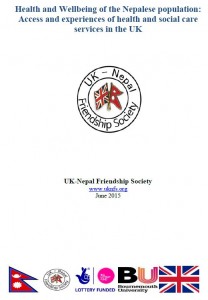


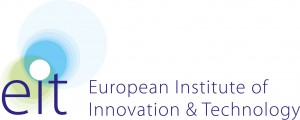

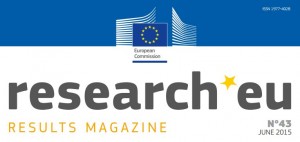
 Many of those contacting the FOS had lost substantial sums of money, and the 185 complaints reviewed involved losses of up to £4.3 million.
Many of those contacting the FOS had lost substantial sums of money, and the 185 complaints reviewed involved losses of up to £4.3 million.
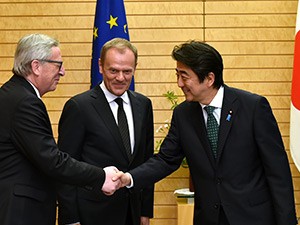

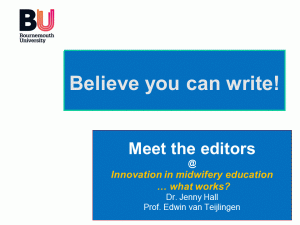
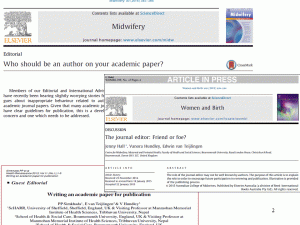



![InnovateUK_LogoA_Interim_RGBx320govuk[1]](http://blogs.bournemouth.ac.uk/research/files/2014/12/InnovateUK_LogoA_Interim_RGBx320govuk1-300x90.jpg)











 FHSS academics teaching in Nepal
FHSS academics teaching in Nepal New weight change BU paper
New weight change BU paper One week to go! | The 16th Annual Postgraduate Research Conference
One week to go! | The 16th Annual Postgraduate Research Conference Geography and Environmental Studies academics – would you like to get more involved in preparing our next REF submission?
Geography and Environmental Studies academics – would you like to get more involved in preparing our next REF submission? Congratulations to three former BU staff
Congratulations to three former BU staff MSCA Staff Exchanges 2024 Call – internal deadline
MSCA Staff Exchanges 2024 Call – internal deadline Applications are now open for 2025 ESRC Postdoctoral Fellowships!
Applications are now open for 2025 ESRC Postdoctoral Fellowships! Horizon Europe – ERC CoG and MSCA SE webinars
Horizon Europe – ERC CoG and MSCA SE webinars MaGMap: Mass Grave Mapping
MaGMap: Mass Grave Mapping ERC grants – series of webinars
ERC grants – series of webinars